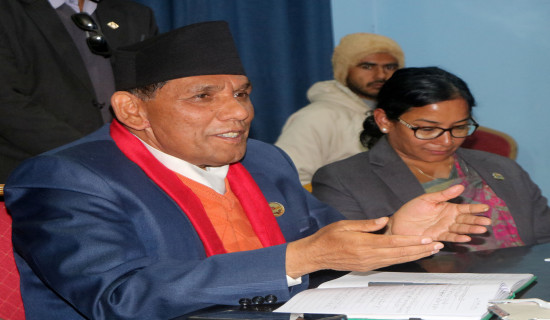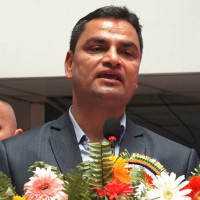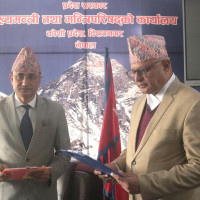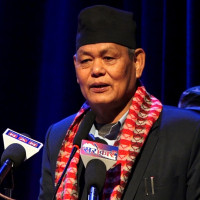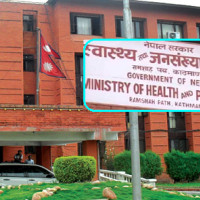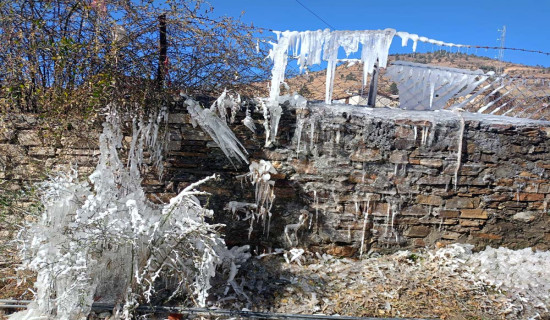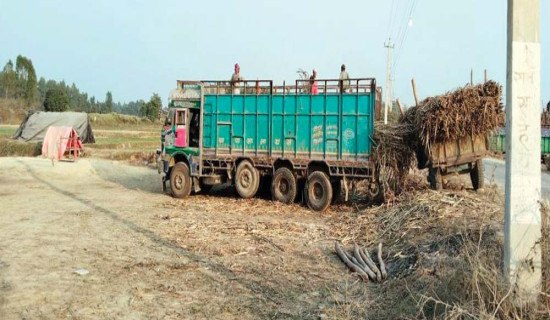- Thursday, 26 December 2024
New Tourism Trends
Saudamini Chalise
Echoes of Pandemic
The sector is still treading over eggshells, gingerly placing its steps to safeguard the interests of key players and stakeholders. The echoes of the pandemic have thoroughly rebooted the concept of tourism. That dreadful grim episode forced the tourism sector to modify and adjust its presentation and approaches.
The concept of 'Green Travel' is gaining immense popularity along with the theory of 'conscious tourism' is experiencing a sudden rise in the mindset of globetrotters in 2022.
Yet another interesting new trend of ‘ed-ventures’ has surfaced in today’s tourism spectrum in the western context. Here, the emphasis is given to such categories of activities where the adults can go on about managing their 'to-do list' of their work schedule and their kids can get a whiff of the combo of education with holidays while being off on vacations, promoting the concept of learning while having fun.
Apart from this, there have been other prominent shifts in the tourism scenario, such as more and more people rebooting the pattern of their lifestyles, they now cherish the idea of spending quality time over 'Personal development retreats and choosing couture locations for retreats. The focus has shifted to choosing entrepreneur options rather than engaging in jobs.
The concept of 'barefoot workstation' took a front seat in 2022, where many have preferred to indulge in having a barefoot workstation rather than taking a hiatus or brief sabbatical from work.
The concept of ‘workstation’ sprouted from the gloomy phases of the pandemics. For example, for more than 18 months, destinations such as Mauritius, Bermuda, Barbados, and Aruba have launched digital nomad visa's targeting long-term stayers and it doesn't seem that this sort of trend is going off the scene any soon. After a long haul of 60 years, our neighbouring country 'Bhutan’ opened up hiking routes for tourists in May 2022 with overnight stays in tents and local homestays en route.
Therefore, by watching the trade indications, it is observed that these kinds of multi-stop hikes filled with adventure along the way will have more demands in the coming days. Nepal too should concoct our local brew of adventure-filled themed itineraries to attract throngs of tourists to our turf.
The aftermath of COVID-19 continues to plague the tourism spectrum, which has made travel a bit costly and complicated due to the pandemic-related norms and regulations that have to be adhered to. This frustrating situation gave birth to the idea of an 'all-inclusive resort' fostering the theory that even high-end clienteles prefer hassle-free consumption of tourism paraphernalia. Resorts catering to high-end clients have resorted to having an all-inclusive resort where everything, from meals to water sports, is included in the price.
For some reason, the concept of ‘Hallucinogenic Healing’ is gaining momentum in the world of tourism. It seems that people are drawn by the therapeutic benefits of hallucinogenic drugs that are being widely recognised and their consumption is being legalised in most countries.
Some trade gurus of tourism have been the pioneers to encash the trend by organizing 'Shamanic magic mushroom journeys in Canada, and operating healing centres in Costa Rica under the prescribed guidelines of indigenous healers and clinical psychologists. Another new trend that seems to have taken the spotlight this year is the concept of 'Multigenerational travel' based on the idea of 'celebration travel as the motivator'.
Perhaps the dark and heart-wrenching inescapable journey throughout the Covid phase made people understand the priceless value of 'Family and generation in the family throughout the globe', ushering in the theory of multigenerational travel. Due to the pandemic, the travellers consciously choose the option of such travel companies, which cater to the option of sustainable policy, the traveller chooses to support the local economies and local culture of the host nation.
Another trend that seems to be in currently is the ‘new hotel technology, the pandemics became the catalyst to usher in the use of new technologies in the hotels to combat the employment shortage in that sector. For example, more and more keyless doors are seen in the hotels where the door can be opened by QR codes on the phone of the clients and having the luxury of picking up the room without going to the front desk of the hotel.
And last but not least, there have been some solid hints in the tourism industry about improving the situation of racial diversity in the global concept as the travel industry had never been strong in the matters of racial diversity.
In the Nepalese context, we must keep our eyes peeled out for any subtle or factual transformations in the tourism spectrum as tourism is and will continue to remain our major source of generating revenue into the bloodstream of our budget.
(The author holds a PhD in Travel and Tourism)



